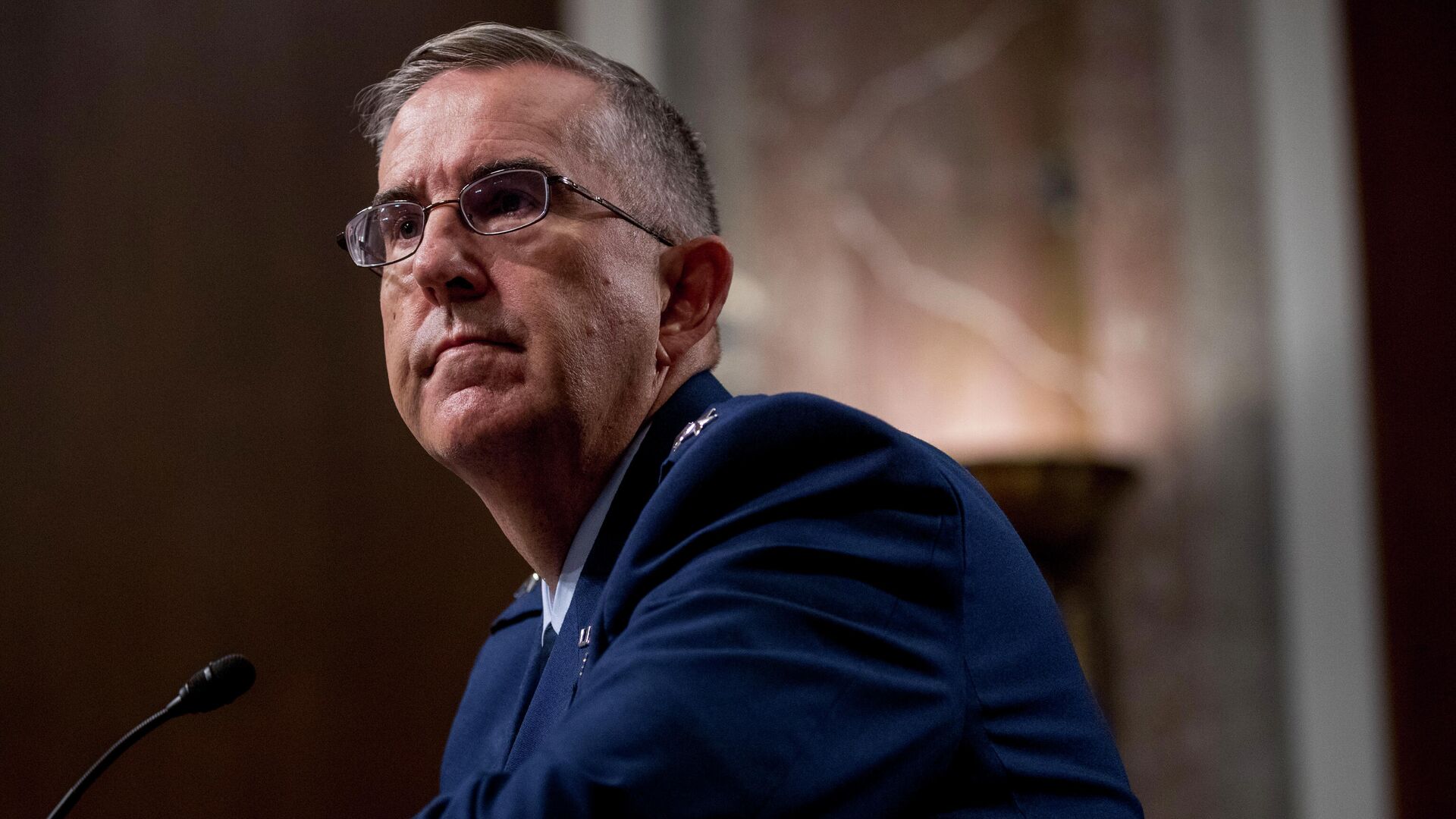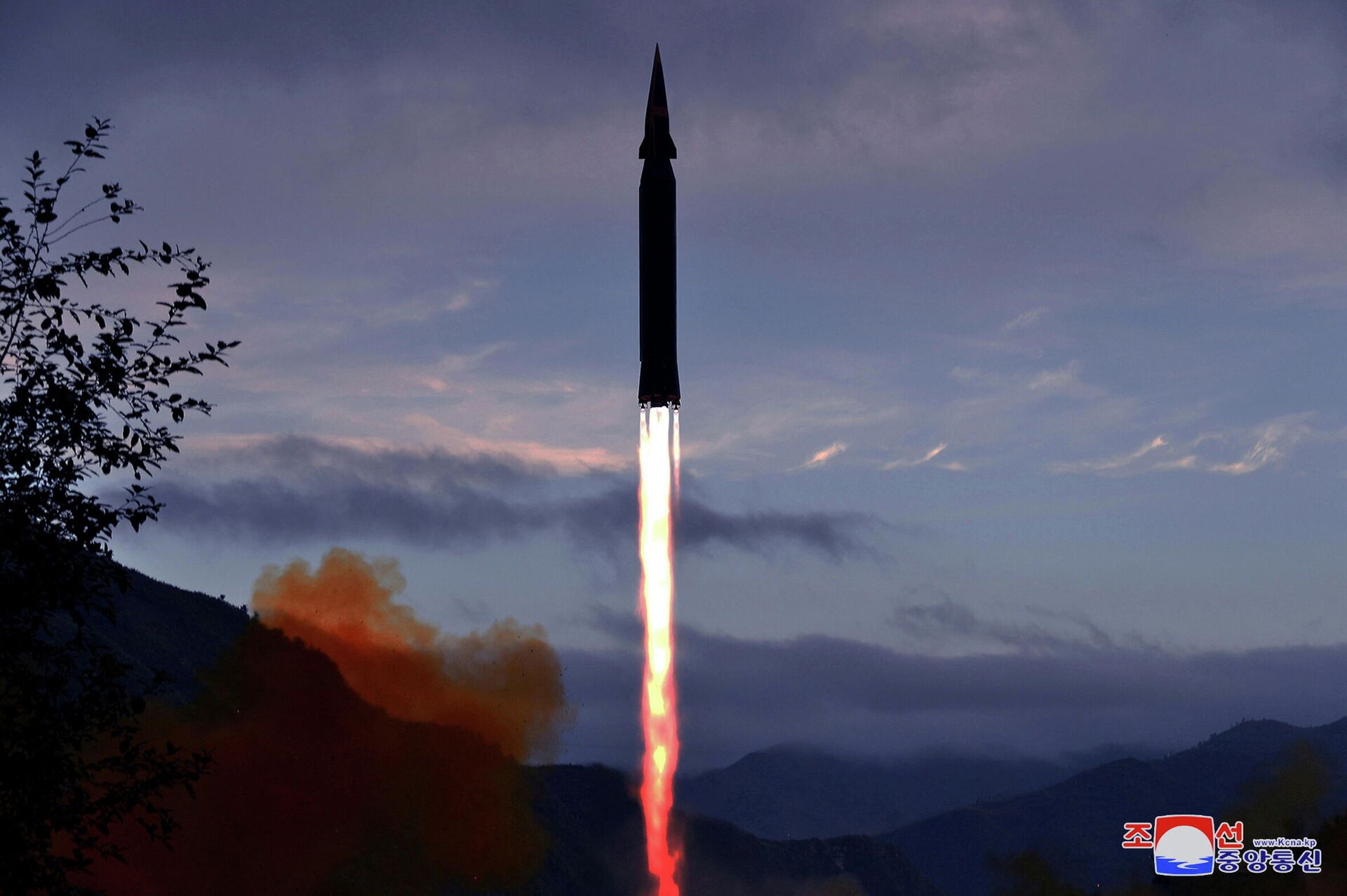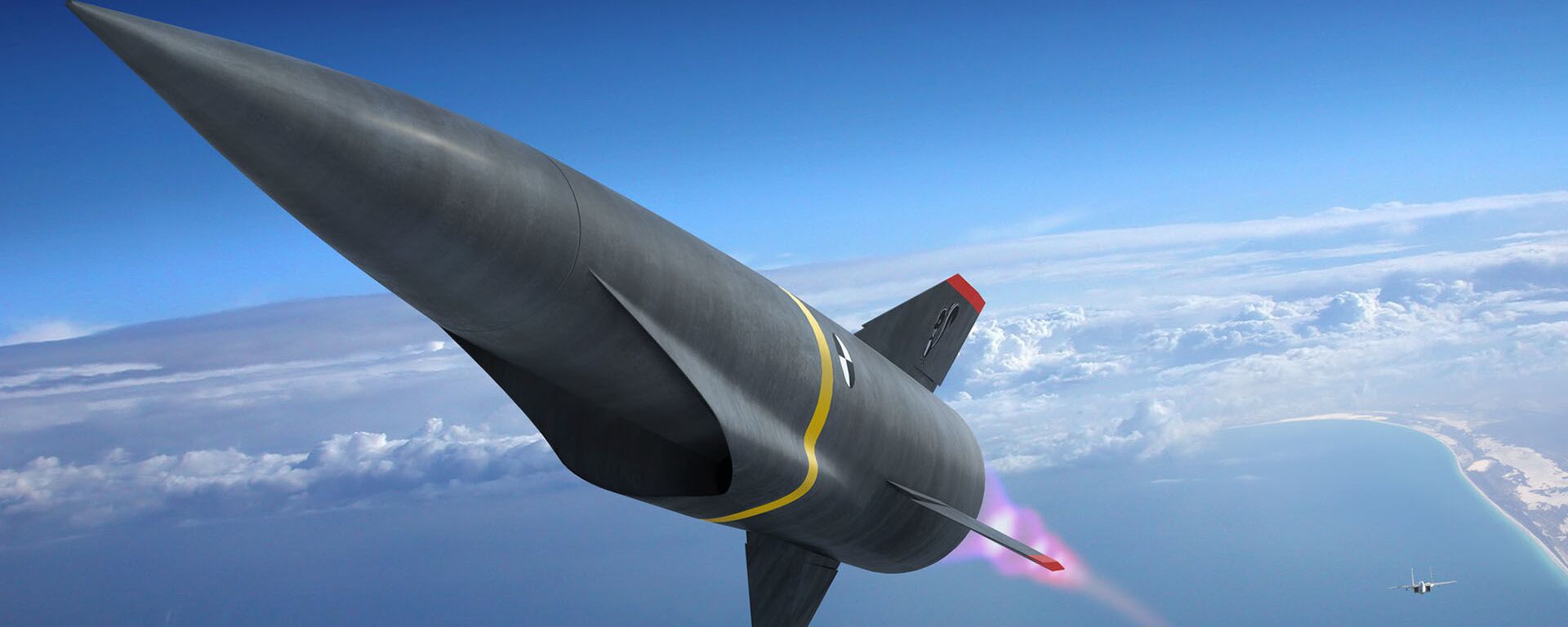US Gen. Says China's Done 'Hundreds' of Hypersonic Weapon Tests While DoD is 'Bureaucratic' - Report

© AP Photo / Andrew Harnik
Subscribe
Gen. Hyten's remarks come a week after a failed US hypersonic test and as tensions between the US and China over Taiwan, which the latter considers as an integral part of its territory, remain high, as well as recent reports of China allegedly conducting a successful test of a new potentially nuclear hypersonic missile in August.
Following China's purported test of a hypersonic missile, the second most senior US general stated that China's military growth is "stunning," while US development is hampered by "brutal" bureaucracy, CNN reported on Thursday.
According to the report, General John Hyten, the outgoing Vice Chairman of the US Joint Chiefs of Staff, backed Secretary of Defense Lloyd Austin's assessment of China as a "pacing threat," while describing Russia as the greatest immediate concern.
"Calling China a pacing threat is a useful term because the pace at which China is moving is stunning," Hyten is quoted in the report as telling reporters at a Defense Writers Group roundtable. "The pace they're moving and the trajectory they're on will surpass Russia and the United States if we don't do something to change it. It will happen. So I think we have to do something."
He echoed his immediate superior, Joint Chiefs Chairman Gen. Mark Milley, in expressing alarm over the recently reported Chinese hypersonic test, which Milley described as "very close" to what he calls a "Sputnik moment," apparently referring to the fact that the USSR was the first in the world to launch an artificial satellite, taking first place in the space race, which came as a complete surprise to the US.
"It's not just the United States but the United States and our allies because that's the thing that really changes the game," Hyten added. "If it's the United States only, it's going to be problematic in five years. But if it's the United States and our allies I think we can be good for a while."
The development of hypersonic weapons, according to Hyten, exemplifies the vast differences between the US and China's approaches. In the last five years, he reportedly claimed, the US has conducted nine hypersonic tests, whereas the "Chinese have done hundreds."
"Single digits versus hundreds is not a good place," Hyten noted. "Now it doesn't mean that we're not moving fast in the development process of hypersonics, what it does tell you is that our approach to development is fundamentally different."
Explicitly, the general slammed the US approach to failed new weapons tests, discussing last week's failed hypersonic missile test by the US military, which was cut short entirely after a rocket booster designed to accelerate a glide vehicle to hypersonic speeds failed.

The newly developed hypersonic missile Hwasong-8 is test-fired by the Academy of Defence Science of the DPRK in Toyang-ri, Ryongrim County of Jagang Province, North Korea, in this undated photo released on September 29, 2021 by North Korea's Korean Central News Agency (KCNA).
© REUTERS / KCNA
In particular, Hyten praised the approach to the development of weapons in North Korea, noting that its leader Kim Jong Un decided "not to kill scientists and engineers when they failed, he decided to encourage it and let them learn by failing."
"And they did. So the 118th biggest economy in the world -- the 118th -- has built an ICBM nuclear capability because they test and fail and understand risk," he explained.
'Unbelievably Bureaucratic and Slow' Pentagon Must Be Hastened
He also urged his yet-unnamed successor to "focus on speed and re-inserting speed back in the process of the Pentagon" in "anything that he touches."
"Although we're making marginal progress, the Department of Defense is still unbelievably bureaucratic and slow," Hyten stressed. "We can go fast if we want to but the bureaucracy we put in place is just brutal."
However, the general refused to go into detail about what is known about China's alleged hypersonic missile test this summer, saying only that it happened and that it is "very concerning." But he emphasized that Russia is the most immediate threat to the US, citing Russia's more than 1500 deployed nuclear weapons, of which China has around 20%.

Global Times: US Should Stop Eyeing Too Much on China's Hypersonic Missiles and Broaden Its Horizons
19 October 2021, 09:23 GMT
According to Hyten, China's hypersonic and nuclear weapons are only partially related to Taiwan, hence they are "meant for the USA" instead.
"We have to assume that, and we have to plan for that, and we have to be ready for that, and that's the position they're putting us in with the weapons they're building," he noted.
Hyten was previously the head of US Strategic Command, where he oversaw the country's nuclear arsenal and kept an eye on strategic threats.
